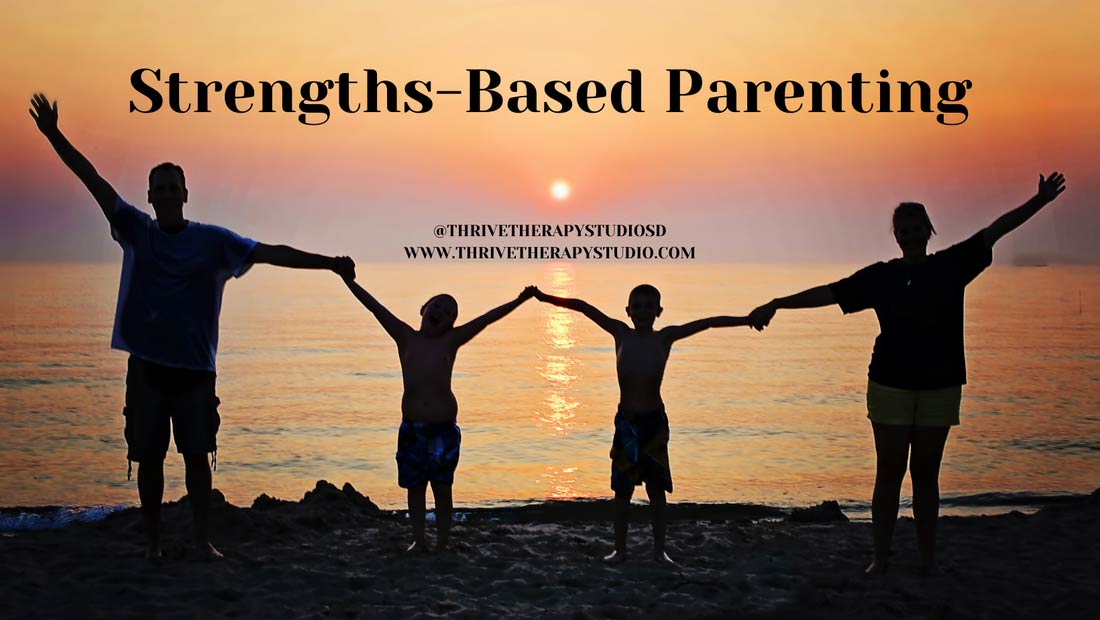As the saying goes, there is no user manual that comes with having a child. However, the amount of parenting advice, either asked for or not asked for, begins being shared not too long after someone announces they are pregnant. As much as someone might want to be the perfect parent, we all know that perfect parenting is not possible for anyone! It can be easy to become frustrated about ways you might feel like you are not doing the best, or exasperated when your efforts to help your child follow rules are not working. If you have been feeling this way, I would encourage you to take a moment to think about what you know you are doing well. What is one thing about parenting you know you are good at? As the title of this blog says, this is a start to parenting from a strengths-based perspective.
So what is a strengths-based perspective? In short, it puts more emphasis on catching and elevating your child’s strengths to help them become more confident, gain independence, and engage in more positive behaviors (like sharing their toys with their siblings or doing the dishes). There are a variety of ways someone can incorporate a strengths-based approach into their parenting style. Here are a few of them!
1. Take time to think about what your child’s top strengths are. Maybe your child is really generous, or maybe they are great at showing they care for others. This could show up as them deciding on their own to share their toy with their friend, or it might mean that when they see a child fall, they are one of the first ones to make sure the child is okay.
2. Point out when they use their strengths. This is similar to the idea of “catching them doing good”. Whatever their top strengths are, try letting them know you see them using that strength. This continues to increase the likelihood that they will engage in more positive behaviors while increasing their confidence and likelihood to try new tasks.
3. Reframe weaknesses as areas of growth. This can look like remembering that though your child might be struggling with something now, it does not mean they always will. When thinking about myself as a child, let’s just say forgiveness was an area of growth. It was very easy for me to hold a grudge, but over time, I was able to see that holding grudges really wasn’t benefitting me. If your child is in a similar situation, when you see them forgiving someone else, you can “catch” them and say “I love the way you were able to forgive them”. This encourages them to continue doing so!
4. Recognize the strengths you have as a parent. Yes, I think this is important enough to say twice in the same blog. 🙂 With anything in life, it is so easy to notice our shortcomings more often than the things we are really good at. By recognizing your own strengths, it helps model for your child to notice theirs as well.
All in all, remembering to give yourself grace is so important. No matter the image anyone portrays, no one is a perfect parent (or always has an easy going child). If you ever respond to your child in a way that you wish you hadn’t – it’s okay! There will always be a next time and repair is the most important thing you can do as a parent.
Reach out to start
your healing journey


